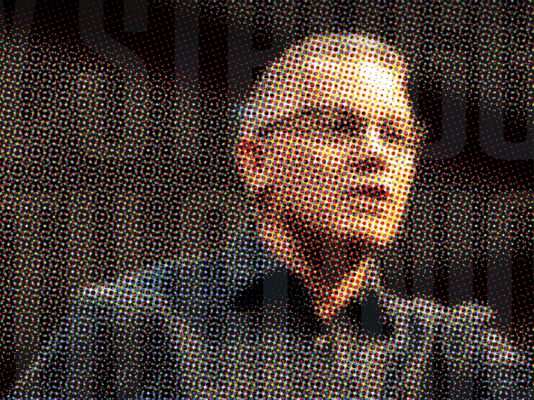What links the topics of immigration, gambling, racial unity, and prison reform? Underneath these issues is the awareness that each individual is created in the image of God and therefore possesses inherent worth and dignity. The Ethics and Religious Liberty Commission (ERLC) seeks to advance human flourishing and a just society through furthering policies that recognize the dignity inherent to all people. This is an outflow of the Bible’s teaching, as well as various statements from the the Southern Baptist Convention (SBC) recognizing our calling to stand up for the marginalized and oppressed. In so doing, Christians point to a God who is just and commands us to seek justice and righteousness, especially for the vulnerable (Micah 6:8).
Predatory relationships
The ERLC stands in Southern Baptists’ long tradition of opposing predatory relationships and the unjust treatment of the impoverished. Though initial leaders of the organization such as A. J. Barton often focused on gambling as a vice, they also noted its destructive connection between the preyed upon individual and those seeking to profit from them.
They connected the problem of liquor in the saloon to the various vices that sprang up in the community around it, such as gambling and prostitution, which were deleterious for the poor and the family. This theme of speaking up for the vulnerable in society was championed by past leaders of the organization such as Hugh Brimm, Acker (A.C.) Miller, and Foy Valentine.
More recently, the ERLC has spoken to the problems of predatory relationships and how society treats the poor. On the basis of a 2014 resolution condemning predatory payday lending, the ERLC advocated and was crucial in the repeal of the 2017 “True Lender” rule, which allowed predatory lending organizations to avoid regulations in their state and enabled them to charge unjust and exorbitant interest rates on the borrowers.1https://erlc.com/resource-library/articles/erlc-applauds-the-u-s-house-of-representatives-for-repealing-the-true-lender-rule/ Additionally, the ERLC has spoken out about the rise of online gambling and sports betting, noting that the rapid legalization of online sports betting is most likely to injure the poor and those who are impoverished.2https://erlc.com/resource-library/articles/how-christians-can-think-about-the-epidemic-of-online-gambling-and-sports-betting/
Race
The history of the SBC and the ERLC (and the earlier commissions) is one that is tragic in its failure to uphold human dignity, particularly for non-white individuals. The SBC was founded out of a commitment to send slave owners as missionaries, wedding the gospel to the anti-Christian message of human enslavement. Even the earliest leader of the Committee on Temperance (the forerunner of the ERLC), A. J. Barton, though supportive of some measures of African American institutions such as the founding of American Baptist College and Seminary, was still committed to a program of racial segregation.
However, following Barton, the Christian Life Commission (CLC) took a turn toward racial equality under the leadership of all the following presidents. Imperfectly at times, they advocated for recognizing the dignity and worth of African Americans, addressing the primary problem of their day.
In one notable instance, A.C. Miller, in his first address as president of the CLC to the convention, offered a resolution in support of the recent Brown v. Board of Education ruling ending school segregation in 1954. Met with fierce opposition, he called on Southern Baptists to respect the ruling. Jesse Weatherspoon, a former leader of the organization, stood up to defend the resolution, concluding that “If we withdraw this from our consideration tonight, we are saying to the United States of America, ‘Count Baptists out in the matter of equal justice, and I do not believe we want to do that!’” Following his speech, the recommendation was passed.3https://cdn.sbhla.org/wp-content/uploads/20211228154827/SBC_1954-16-Friday_evening-Part_1.MP3 https://cdn.sbhla.org/wp-content/uploads/20211228154836/SBC_1954-17-Friday_evening-Part_2.MP3
Additionally, at other points in the history of the SBC, the ERLC played a key role in advancing the cause of racial reconciliation. Former ERLC President Richard Land was pivotal in the passage of the 1995 resolution apologizing to “all African-Americans for condoning and/or perpetuating individual and systemic racism in our lifetime and we genuinely repent of racism of which we have been guilty, whether consciously (Psalm 19:13) or unconsciously (Leviticus 4:27).”4https://www.sbc.net/resource-library/resolutions/resolution-on-racial-reconciliation-on-the-150th-anniversary-of-the-southern-baptist-convention/
In 2016, Russell Moore spoke to and supported the resolution repudiating the Confederate battle flag, noting that “the Cross and the Confederate flag cannot co-exist without one setting the other on fire.”5https://www.russellmoore.com/2016/06/14/southern-baptists-confederate-flag/ The following year, Moore spoke up in defense of the 2017 resolution which condemned “The Anti-Gospel of Alt-Right White Supremacy.” In his speech from the floor in support of the resolution, Moore referred to racism and white supremacy as attacks on the gospel and Christ himself.6https://www.baptistpress.com/resource-library/news/sbc-denounces-alt-right-white-supremacy/
In 2018, the ERLC and The Gospel Coalition co-hosted a special event in Memphis, Tennessee, called MLK50: Gospel Reflections from the Mountaintop, with nearly 4,000 attendees. A diverse array of speakers emphasized that racial unity is a gospel issue, with the dividing wall of hostility torn down by Christ (Eph. 2:14), and equipped the body of Christ to pursue racial unity in the midst of tremendous tension. One of the highlights from the MLK50 conference was that over $1.5 million dollars were raised for the “MLK50 Dream Forward Scholarship Initiative,” which allows Christian colleges and seminaries to invest in the educational future of minority students.7https://erlc.com/resource-library/articles/6-special-features-of-mlk50/
Criminal justice reform
As early as the 1960s, at a ceremony held in the Rose Garden of the White House and organized by the CLC and Foy Valentine, the attorney general called for greater church involvement in crime prevention and support of law enforcement, but he also addressed “criminal rehabilitation.”8Aaron Griffith, God’s Law and Order: The Politics of Punishment in Evangelical America (Cambridge, MA: Harvard University Press, 2020), 125. However, as historian Aaron Griffith has argued, this was often a position in contrast to the majority of the laity in the SBC, many of whom favored a law and order political strategy.9Ibid, 127.
One of the more recent and prominent ways the ERLC has been able to encourage lasting change in this area is by advocating for criminal justice reform. Through partnerships with organizations such as Prison Fellowship, the ERLC has advocated for reforms which respect the humanity and imago Dei of individuals while incarcerated, and continues to seek policies that make the justice system more equitable.
One prominent reform occurred in 2018 with the First Step Act, passed and signed into law by President Donald Trump. This bill “provide[s] for programs to help reduce the risk that prisoners will recidivate upon release from prison.”10https://www.congress.gov/bill/115th-congress/house-bill/5682/text The ERLC advocated for the act repeatedly in meetings with congressional staff and sent letters to legislators urging its passage because of the value of each person. As the ERLC noted: “These [people] are our neighbors who bear God’s image … A balance needs to be struck between upholding the law for community safety and dealing holistically with how we punish and rehabilitate individuals who break those laws.”11https://erlc.com/resource-library/articles/how-the-erlc-has-been-advocating-for-marginalized-communities/
Immigration
The ERLC also works to equip Christians to carry out the call of Scripture to treat the immigrant and refugee with care and respect (Deut. 10:19). Richard Land was known for saying that America has spoken in two ways to immigrants, with signs saying “Help Wanted” and “No Trespassing.” Land argued that the nation should both secure its borders and provide a pathway to legal citizenship for the undocumented individuals already in the country, pointing back to a promise made by President George Bush in his 2000 campaign.12https://www.npr.org/templates/story/story.php?storyId=127769214
In 2016, the SBC passed a resolution on “Refugee Ministry,”13https://www.sbc.net/resource-library/resolutions/on-refugee-ministry/14and in 2018, passed another titled “On Immigration,”14https://www.sbc.net/resource-library/resolutions/on-immigration/ stating their desire to see “immigration reform include an emphasis on securing our borders and providing a pathway to legal status with appropriate restitutionary measures, maintaining the priority of family unity, resulting in an efficient immigration system that honors the value and dignity of those seeking a better life for themselves and their families.”
To that end, the ERLC works with the Evangelical Immigration Table—a national movement committed to applying biblical principles to immigration issues—to urge Congress to take action and develop bipartisan solutions. Additionally, the ERLC has advocated for a robust refugee resettlement program by making the case that the program, since its inception in 1980, has long enjoyed both broad bipartisan support in Congress and in the communities these men and women have enriched, including many Southern Baptist churches.15https://erlc.com/resource-library/articles/why-we- need-to-rebuild-the-refugee-resettlement-program/
Conclusion
Christians are called to care about the least of these and to work for just systems to protect our vulnerable neighbors. May we pray that the Lord would open our eyes to those we can help and use our time, talent, and treasure to proclaim that every person has inherent worth. On behalf of Southern Baptists and before the world, the ERLC will continue to uphold the dignity of every individual through advocacy efforts, equip pastors and local churches, and help form the moral imagination of others to see that everyone is precious in God’s sight.










